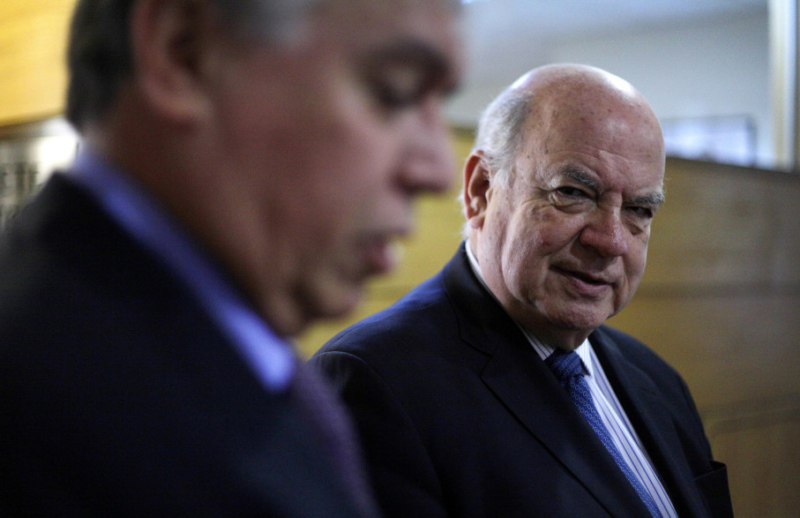Adios, Amigos
As Hillary Clinton travels through Latin America this week, the U.S. secretary of state will find it profoundly transformed from the relatively serene region she encountered as first lady in the 1990s.
More than a year after the Organization of American States (OAS) published the report on the Drug Problem in the Americas, the Dialogue’s Peter Hakim met with the Secretary General of the OAS José Miguel Insulza to discuss drug policy in the hemisphere.
To start off, Insulza stressed the emerging consensus that the “war on drugs” strategized by the United States is not working. His enumeration of the ills American societies continue to face -“more problems, more addicts, more people in jail”- makes it clear as to why there is greater openness to discussing alternative policies. OAS statistics paint a stark picture of drug use and trafficking: while more than one-third of the 3.6 million people jailed in the Americas were arrested for drug related offenses, there is no indication that the drug flow has decreased. In fact, Thomas McLarty, former Chief of Staff for Bill Clinton, remarked at the last CAF Conference that there has been a mindset change in Washington. At the meeting, Insulza duly pointed out that in the context of the Colorado and Washington experiment and shifting public opinion in the US in favor of marijuana legalization and regulation, U.S. officials no longer speak of a “war on drugs”
The OAS report, which consists of an Analytical Report, and a Scenarios Report, stands as a landmark for a new willingness on the part of American states to better understand drug use and explore nontraditional approaches to the drug crisis. The report shies away from offering any one recommendation, but as Insulza noted when delivering the report in 2013, it does encourage “a shared vision that allows states to join forces to address the problem, while respecting diversity in approaches to it.”
Attesting to how variables such as violence and lack of access to education and employment opportunities increase individuals’ susceptibility to problematic drug use, Insulza did suggest for authorities to shift away from a criminal justice strategy and invest in a public health approach. As outlined in the OAS report, leaders are called to ask themselves above all else “to what extent current policies, geared to punishment and criminalization, trigger more harm than they prevent.”
But a year after the OAS initiated a dialogue on the issue, what is the state of the drug problem today? Insulza remarked that “the drug business is doing better than ever” and is especially profitable for cartels due to its persisting criminalization. According to the OAS report, the value of cocaine increases approximately 500-fold along the value chain with the original kilo costing on average 650 dollars and the total retail sales soaring to about 330,000 dollars. Despite the normative changes in discussion, Executive Secretary of the OAS’ Inter-American Drug Abuse Control Commission (CICAC) Paul Simmons indicated that the enforcement of the public health approach is weak. “Funding for drug control programs is scarce, especially with respect to prevention and treatment,” he asserted. Moreover, to the exception of Uruguay that legalized Marijuana in 2013, “while there seems to be a consensus in the US to legalize marijuana, such is not the case in Latin America," emphasized Insulza. But for drug consumption to be reduced through prevention campaigns in accordance with public opinion, “we ought to carry out more polls,” noted Paul Simmons.
In concluding remarks by Hakim, it was clear that Latin America has taken a leadership role in drug policy. It remains to be seen, however, if such impetus is sustained and what direction it takes.
As Hillary Clinton travels through Latin America this week, the U.S. secretary of state will find it profoundly transformed from the relatively serene region she encountered as first lady in the 1990s.
Insulza appears to be headed for reelection as Secretary General of the OAS. The Chilean diplomat is gathering support throughout the hemisphere. The US and Venezuela are among the holdouts.
The OAS needs to be reformed, but the changes need to emerge from accurate analysis of the problems confronting both Latin America and the OAS.
 Government of Chile / CC BY-NC 2.0
Government of Chile / CC BY-NC 2.0